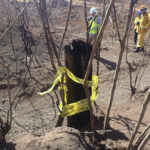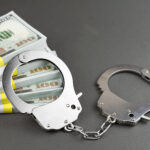Winter is the “season of avoidable surprises” – a time when people can take simple steps to help prevent damage to their homes and accidents in their cars, according to a risk management expert from Atlantic Mutual Insurance Co. The company is offering a free winter risk-management checklist at its Web site at www.AtlanticMutual.com.
Among the tips for improving winter safety, according to William Bernecker, vice president of claims, Atlantic Mutual, are:
1) Prevent water damage from ice damming. Ice damming occurs when thawing-freezing cycles cause melted snow to freeze in gutters. This “ice dam” causes the backup of water underneath roof shingles, with the water dripping down interior walls. One in-season fix: clear snow from the first several feet of the roof using a specially designed “roof rake.” Long-term solutions involve adequately insulating and ventilating attic space and installing a waterproof shield under shingles where water backs up.
2) Make sure entrances are clear in case of fire. Remove snow and ice blocking exterior entrances for easy exit for your family and easy entry for rescue workers. Clear snow from fire hydrants. Ensure that entrance gates open automatically in the event of a fire (via a link to smoke detectors) or that the fire department has the key or code to the gate.
3) Avoid frozen pipes. Insulate water pipes that run inside exterior walls or are exposed in unheated areas such as a garage. When the wind chill factor drops below 15 degrees Fahrenheit, keep doors open in cabinets with plumbing or run water at a trickle. If you’re going to be away from your regular or vacation home, set thermostats to at least 60 degrees. Turn off water supply to the washer, dishwasher and outside spigots. Homes heated by a hot water system should be checked regularly or have a temperature sensor connected to the alarm system. Consider a water-flow alarm.
4) Respect snow-covered and icy roads – yes, even if you have 4-wheel drive. Sport-utility vehicles and other vehicles with 4- or all-wheel drive do not brake or corner better than regular cars in snow or ice. Drive slowly and leave extra braking distance. Allow for extra time to get to your destination. Keep your tire pressure at the proper level and your windshield washer tank filled with freeze-resistant fluid.
“Winter represents one of the worst times of year for losses,” Bernecker noted. “But with a few special steps, homeowners and drivers can minimize the risk of bad surprises.”
Was this article valuable?
Here are more articles you may enjoy.

 Synopsys Sued by Private Equity Firm for Shopping $3 Billion Unit
Synopsys Sued by Private Equity Firm for Shopping $3 Billion Unit  Hawaiian Electric Hits 40-Year Low Ahead of Maui Fire Report
Hawaiian Electric Hits 40-Year Low Ahead of Maui Fire Report  California Chiropractor Sentenced to 54 Years for $150M Workers’ Comp Scheme
California Chiropractor Sentenced to 54 Years for $150M Workers’ Comp Scheme  EVs Head for Junkyard as Mechanic Shortage Inflates Repair Costs
EVs Head for Junkyard as Mechanic Shortage Inflates Repair Costs 